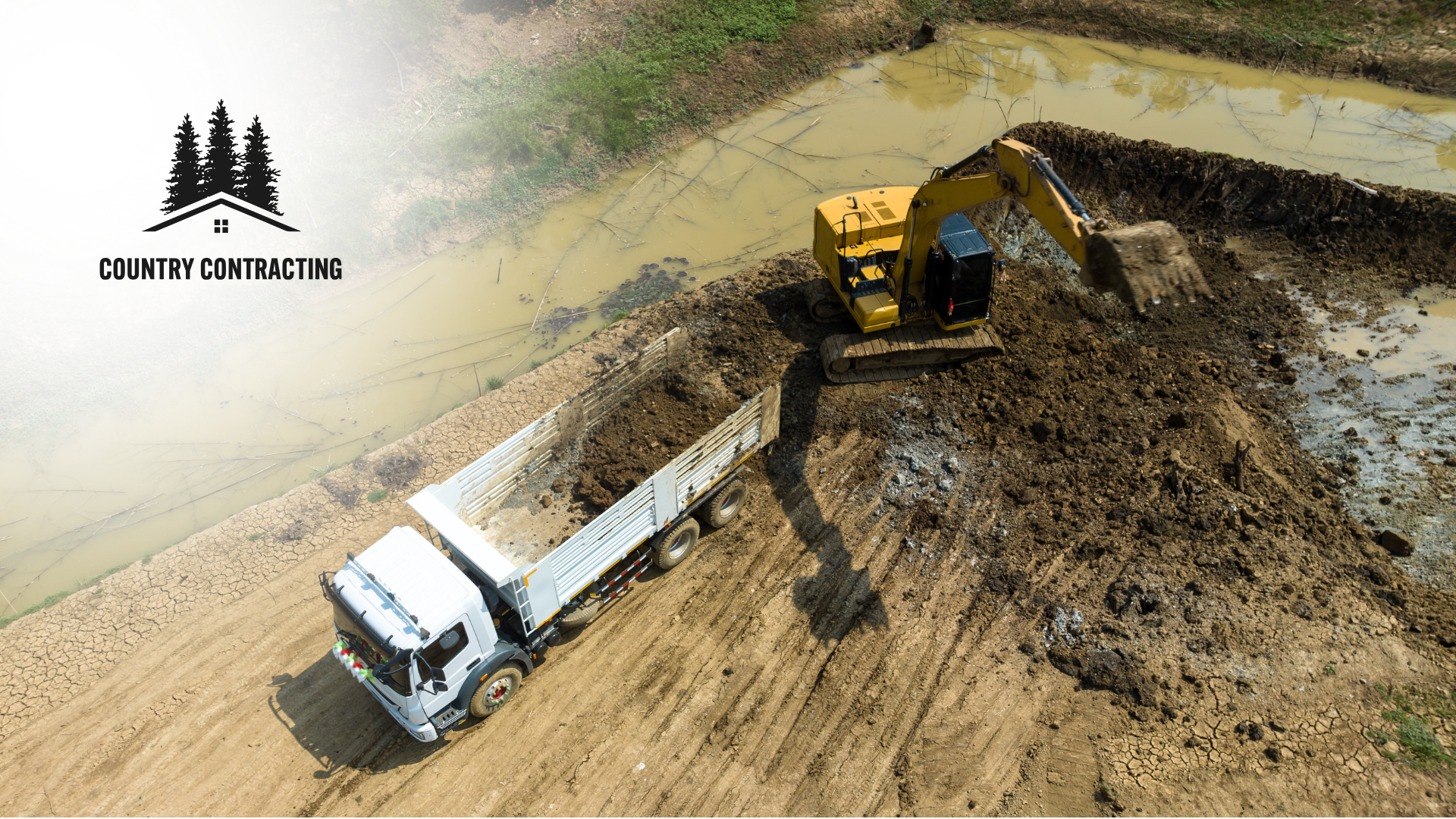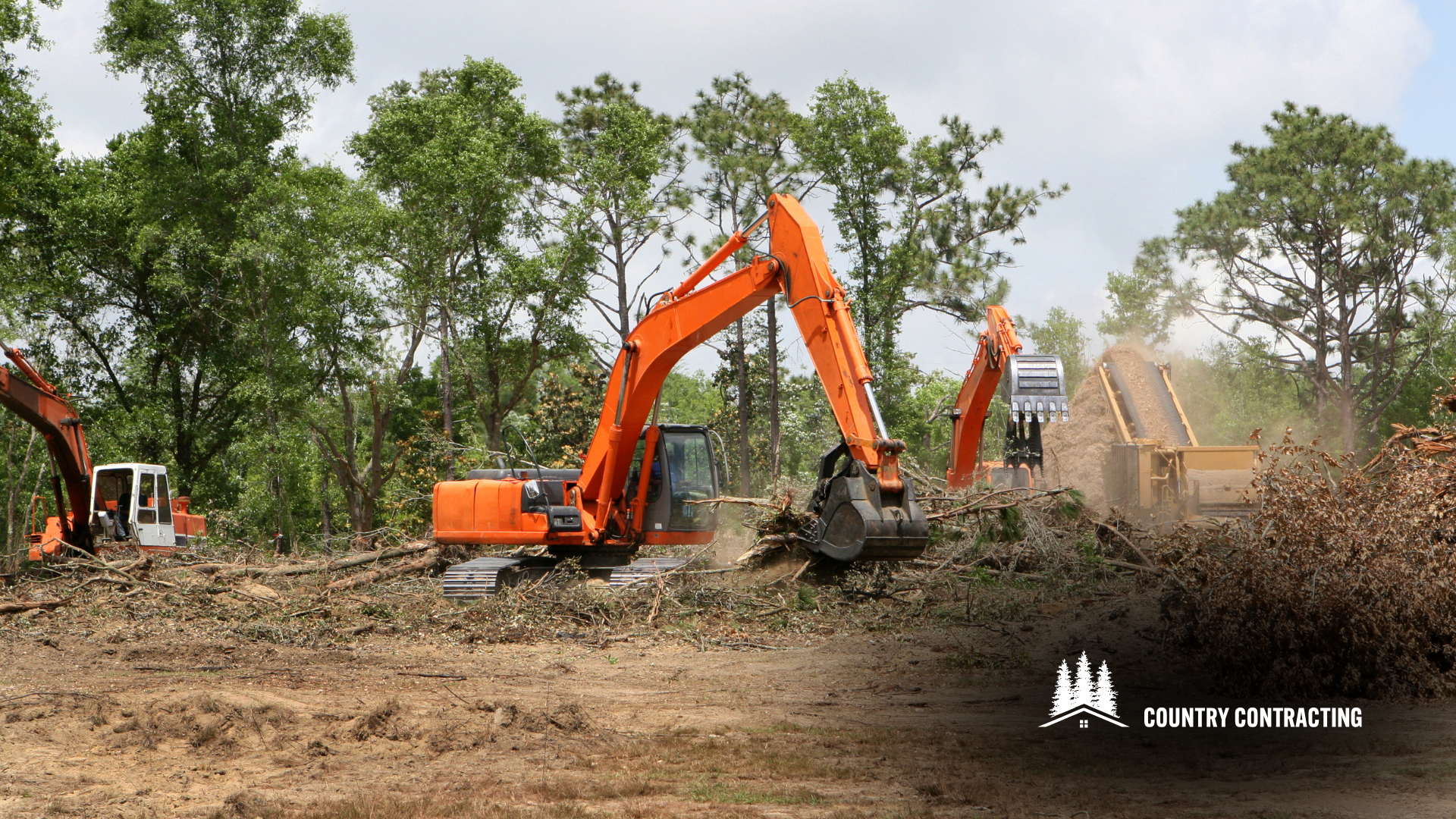CALL FOR A FREE QUOTE TODAY! (705) 457 - 6411
What is a General Contractor?
Understanding the Role of a General Contractor
Definition and Key Responsibilities
A general contractor is a professional responsible for overseeing the day-to-day operations of a construction site, managing vendors and trades, and communicating information to all involved parties throughout the course of a building project. They serve as the central point of coordination and decision-making.
Key responsibilities include:
- Ensuring that the work is completed on time, within budget, and to the required quality standards.
- Obtaining necessary permits and scheduling inspections.
- Hiring and supervising subcontractors to perform specialized tasks.
The general contractor's role is pivotal in transforming the blueprint into a finished structure, requiring a blend of technical knowledge, management skills, and effective communication.
The Difference Between General Contractors and Subcontractors
Understanding the distinction between general contractors and subcontractors is crucial in the construction industry. General contractors oversee the entire project, while subcontractors specialize in specific areas of construction. General contractors are responsible for the execution, supervision, and overall coordination of a project, and they often hire subcontractors to perform specialized tasks such as plumbing, electrical work, or carpentry.
- General Contractor: Manages the whole project, hires subcontractors, communicates with the client.
- Subcontractor: Focuses on a specific trade, reports to the general contractor, does not interact directly with the client.
The relationship between general contractors and subcontractors is symbiotic; the success of a construction project often hinges on their effective collaboration.
Subcontractors are typically hired for their expertise in a particular field and are not involved in the broader aspects of project management. This division of labor allows for more efficient and specialized work, but it also requires clear communication and contractual agreements to ensure that all parties understand their roles and responsibilities.
Licensing and Qualifications Required
Becoming a general contractor involves meeting specific licensing and qualification requirements, which vary by state or region. Licensing ensures that contractors are legally authorized to perform construction work and typically requires passing an exam that covers building codes, construction practices, and business management.
- Educational background in construction or related fields
- Relevant work experience
- Passing a licensing exam
- Ongoing education to maintain the license
It's crucial for clients to verify a contractor's license before hiring to ensure compliance with local laws and regulations. Unlicensed contractors may pose a risk to both the quality of the work and the legal standing of the project.
In addition to licensing, general contractors must often carry certain types of insurance and bonds. These serve to protect both the contractor and the client in the event of accidents, damage, or disputes.
The General Contractor's Involvement in a Construction Project
Project Planning and Management
A general contractor plays a pivotal role in the planning and management of a construction project. They are responsible for translating the client's vision into a feasible plan, ensuring that all aspects of the project are meticulously organized from start to finish.
- Development of a comprehensive project plan
- Scheduling of tasks and milestones
- Coordination with architects and engineers
- Securing permits and necessary documentation
- Risk management and contingency planning
Effective project planning and management by a general contractor can significantly reduce the likelihood of delays and cost overruns, setting the stage for a successful construction process.
Coordination of Labor and Materials
A general contractor's ability to effectively coordinate labor and materials is crucial for the timely and successful completion of a construction project. They must ensure that the right workforce is available at the right time and that materials are delivered and used efficiently.
- Workforce Coordination: Aligning the skills of various workers with the project's needs.
- Material Sourcing: Selecting and purchasing quality materials within budget.
- Scheduling: Timing the delivery of materials to match the construction phases.
- Inventory Management: Keeping track of materials on-site to prevent shortages or excess.
The general contractor acts as the central hub of communication, orchestrating the complex interplay between labor schedules, material deliveries, and the overall project timeline. Their expertise in this area can significantly reduce downtime and prevent costly delays.
Quality Control and Safety Management
Ensuring the highest standards of quality and safety is a pivotal aspect of a general contractor's role. Quality control mechanisms are put in place to meet or exceed project specifications and industry standards. Safety management, on the other hand, involves creating and enforcing job site safety protocols to protect workers and the public.
- Development of a quality control plan
- Regular site inspections and audits
- Compliance with safety regulations
- Training for workers on safety practices
A general contractor's commitment to safety and quality not only minimizes the risk of accidents and defects but also enhances the overall reputation and reliability of the construction firm.
Effective quality control and safety management require a systematic approach, including continuous monitoring and improvement. This ensures that the final construction meets the client's expectations and adheres to all relevant codes and regulations.
Hiring a General Contractor
When to Hire a General Contractor
Deciding when to hire a general contractor is crucial for the success of your construction project. A general contractor should be brought on board when the project's complexity, scale, and scope require professional management and coordination. They are particularly essential for projects that involve multiple subcontractors, as they serve as the central point of communication and organization.
- For new construction or large-scale renovations
- When specialized work such as plumbing, electrical, or structural modifications are involved
- If the project requires permits and inspections
- To ensure compliance with building codes and regulations
Hiring a general contractor early in the planning phase can provide valuable input on design, materials, and cost-saving measures, while also streamlining the overall timeline of the project.
Evaluating and Selecting the Right Contractor
When it comes to evaluating and selecting the right general contractor for your construction project, it's crucial to consider their expertise in specific areas. For instance, if your project involves excavating, ensure the contractor has a proven track record in this field. Similarly, if the project requires specialized work such as steel roofing or siding, it's important to assess the contractor's experience with these materials.
- Look for a contractor with a portfolio of metal roofing near me to gauge their familiarity with local climate conditions and building codes.
- Assess whether they have connections with reputable siding contractors to ensure high-quality installation.
- Inquire about their experience as a custom deck builder if your project includes outdoor living spaces.
Remember, the right contractor will not only have the technical skills but also the ability to manage and coordinate various aspects of the construction effectively.
It's also essential to verify the contractor's licensing, insurance, and references. A thorough evaluation process will help you find a contractor who can deliver quality work within your budget and timeline.
Understanding Contracts and Agreements
When engaging with a general contractor, it's crucial to have a clear and comprehensive contract in place. This document serves as the blueprint for the project, outlining the responsibilities of both the construction company and the client. A well-drafted contract protects all parties involved and ensures a mutual understanding of the project scope, timelines, and payment terms.
- Scope of Work: Detailed description of the project and services to be provided.
- Timeline: Key milestones and completion dates.
- Payment Terms: Schedule and conditions for payments.
- Change Orders: Procedures for any changes to the original contract.
- Dispute Resolution: Agreed-upon method for resolving any potential disputes.
It's imperative to review every aspect of the contract carefully. Pay special attention to clauses regarding termination, liability, and insurance to avoid future complications. Ensuring that all terms are fair and transparent will pave the way for a successful partnership with your general contractor.
The Financial Aspects of Working with a General Contractor
Cost Estimation and Budgeting
A general contractor's ability to provide accurate cost estimations and budgeting is crucial for the financial planning of any construction project. Budgeting involves a detailed analysis of the project's scope, including labor, materials, equipment, and overhead costs. This process ensures that the financial resources are allocated efficiently and helps in preventing cost overruns.
- Initial Cost Estimation: Rough calculation of project expenses.
- Detailed Budgeting: Itemized breakdown of all costs.
- Contingency Planning: Allocation for unforeseen expenses.
It's essential for clients to understand that the initial cost estimate is just that—an estimate. As the project progresses, some costs may fluctuate, and the budget should be reviewed and adjusted accordingly.
A well-prepared budget serves as a financial blueprint for the construction project. It provides a basis for the payment schedules and helps in tracking the financial progress of the work. Regular budget reviews are necessary to manage expenses and ensure that the project remains within the financial boundaries set by the client.
Payment Schedules and Terms
Understanding the payment schedules and terms is crucial when working with a general contractor. Payment schedules outline when and how much you will pay for the construction services, providing a clear financial roadmap for the project. These schedules are typically tied to project milestones or specific dates, ensuring that work is paid for upon satisfactory completion.
- Initial Deposit: Often required to secure the contractor's services.
- Progress Payments: Made at various stages of the project, usually after certain milestones are reached.
- Final Payment: Due upon project completion and satisfactory walkthrough.
It's important to review the payment terms carefully to ensure they are fair and manageable. These terms will include the payment amounts, due dates, and any late payment penalties. A clear understanding of these terms can prevent financial disputes and help maintain a positive working relationship with your contractor.
Always ensure that the payment terms are documented in the contract, and do not hesitate to negotiate terms that are more favorable to your financial situation. Remember, a reputable contractor will be transparent about costs and willing to discuss payment options.
Dealing with Unexpected Costs
Construction projects are notorious for their unpredictability, and unexpected costs can arise at any stage. These may stem from unforeseen site conditions, changes in material prices, or design modifications requested by the client. To manage these costs effectively, it's crucial to have a contingency plan in place.
A well-structured contingency budget is essential for absorbing the shock of unforeseen expenses without derailing the overall project finances.
Here are some strategies to deal with unexpected costs:
- Identify potential risks early in the planning phase.
- Establish a contingency budget as a percentage of the total project cost.
- Maintain clear communication with all stakeholders about financial changes.
- Regularly review and update the budget to reflect actual costs.
Navigating Challenges and Dispute Resolution
Common Issues Faced During Construction
Construction projects are complex and can encounter a variety of issues that can disrupt progress and increase costs. Delays are one of the most common problems, often due to unforeseen circumstances such as bad weather, delayed deliveries, or discovery of site issues like contaminated soil or archaeological finds.
- Change orders can also complicate a project, as they may require significant adjustments to the scope of work, leading to increased time and expense.
- Disputes between parties involved in the construction process, such as disagreements over contract terms or dissatisfaction with work quality, can lead to legal challenges and further delays.
- Safety incidents can occur on the job site, potentially causing injuries, regulatory fines, and work stoppages.
Effective project management and proactive communication are essential to mitigate these risks and keep a construction project on track. It is important for all parties to remain flexible and work collaboratively to resolve issues as they arise.
Effective Communication Strategies
Effective communication is the cornerstone of any successful construction project. Clear, consistent, and timely exchanges between the general contractor, subcontractors, and the client can prevent misunderstandings and ensure that everyone is aligned with the project's goals and progress.
- Establish regular meetings to discuss project updates, changes, and concerns.
- Utilize project management software for real-time updates and documentation.
- Develop a communication plan that outlines who to contact for specific issues.
It's essential to document all communications. This practice not only helps in maintaining a clear record of decisions and changes but also serves as a reference in case of disputes.
By fostering an environment of open dialogue and transparency, parties can navigate the complexities of construction projects with greater ease and collaboration.
Legal Recourse and Mediation Processes
When disputes arise during a construction project, legal recourse and mediation processes become essential tools for resolution. Contractors and clients must understand their rights and the steps to take when conflicts occur. Mediation serves as a less adversarial and often more cost-effective method than litigation, allowing both parties to reach a mutually agreeable solution with the help of a neutral third party.
- Identify the issue and seek to resolve it informally.
- If unresolved, consider mediation before legal action.
- Engage a mediator with experience in construction disputes.
- Prepare for mediation by gathering all relevant documentation, including contracts and records of communication.
In the context of construction, even specialized services like lot clearing services can become points of contention. It's crucial to have clear contracts and agreements detailing the scope of work, deadlines, and payment terms to prevent disputes. If disagreements over such services arise, documentation will be key in mediation or legal proceedings.
Remember that the goal of mediation is to avoid the time and expense of court while achieving a fair outcome. Should mediation fail, litigation may be the next step, but it's often a last resort due to its complexity and cost.
Frequently Asked Questions
What exactly does a general contractor do?
A general contractor is responsible for overseeing the day-to-day operations of a construction project, managing subcontractors, ensuring the project stays on schedule and within budget, and maintaining quality and safety standards.
How do general contractors differ from subcontractors?
General contractors are the main point of contact for the client and are responsible for the overall coordination of a project, while subcontractors are specialized professionals hired by the general contractor to perform specific tasks, such as plumbing, electrical work, or carpentry.
What qualifications should a general contractor have?
A general contractor should have a combination of relevant education, such as a degree in construction management, and significant experience in the construction industry. They should also hold the necessary licenses and certifications required by their local or national regulatory bodies.
When is it necessary to hire a general contractor?
It is necessary to hire a general contractor when undertaking a large or complex construction project that requires the coordination of various trades, extensive project management, and a central point of accountability.
How do you choose the right general contractor for your project?
Choosing the right general contractor involves researching and comparing potential contractors based on their past projects, reputation, credentials, and the quality of their bids. It's also important to conduct interviews and check references before making a decision.
What are some common challenges faced during construction, and how can they be resolved?
Common challenges during construction include delays, cost overruns, and quality issues. These can be resolved through proactive communication, clear contractual agreements, and having a solid project management plan in place. In case of disputes, mediation or legal action may be required.
CONTACT US
AREA SERVED
HALIBURTON AND SURROUNDING AREA
NAVIGATION LINKS
EMAIL US
Copyright © 2024 Country Contracting and Construction - All Rights Reserved.











